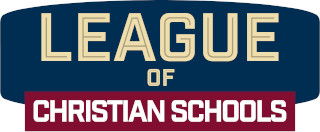Project Description
Christian schools are distinct from public schools in a lot of areas. However, there exists no more significant distinction than Biblical instruction. LCS schools adhere to a basic belief that the Bible is the hinge upon which the door of all knowledge must swing. Unfortunately, a teacher cannot impart what he or she does not possess.
It is the desire of this agency, as has been demonstrated and required through the teacher certification process, that all teachers possess proficient understanding of scripture and basic doctrine. To this end, LCS has created several ways through which a teacher may gain this knowledge. These programs are significantly helpful for teachers who have been trained in secular universities where formal instruction in God’s word is often not taught.
To meet the Bible requirement teachers can pursue the following:

A teacher can enroll in any of the AG universities for BIble course credit. ILCS/FLOCS has forged partnerships with both Southeastern University (Lakeland, FL), and Southwestern Assemblies of God University (Waxahachie, TX). However, all of the following are acceptable:
- American Indian College – Arizona
- Assemblies of God Theological Seminary – Missouri
- Caribbean Theological College – Puerto Rico
- Evangel University – Missouri
- Global University – Virtual
- Latin American Bible Institute – California
- Latin American Bible Institute – Texas
- Native American Bible College – North Carolina
- North Central University – Minnesota
- Northwest University – Washington
- Southeastern University – Florida
- Southwestern Assemblies of God University – Texas
- Trinity Bible College – North Dakota
- Valley Forge Christian College – Pennsylvania
- Vanguard University – California
- Western Bible College – Arizona
- Northpoint Bible College & Graduate School – Massachusetts
Other colleges and universities may be accepted, but please be sure that the school is fully accredited and recognized by the Council for Higher Education

Educators can earn credit for Bible through the Pathway online program. This program is VERY inexpensive, and can be done right on a mobile device. The courses are asynchronous (learn at your own pace) with a transcript provided for all work completed.
The Pathway Training App brings both biblical education and ministerial training straight to your phone. With one subscription students get access to all the biblical, theological, and ministerial courses in our catalog. Additionally, students will have access to any and all elective courses, which are continually being developed. These courses also fulfill the educational requirements to maintain LCS educator certification and even become a credentialed minister in the Assemblies of God.
Pathway Features:
- Fully Online: All the content from start to finish on any of your devices.
- Stream anytime, anywhere. View the course content on any device, whenever you want…like Netflix for bible courses!
- Subscription Based: Instead of paying per course, students gain access to all of our online courses for one low cost of $50 a month.
- Self-Paced: Students progress through the material however they like, with no due dates or expirations. Some students binge watch/read the material, while others view it at a more regular pace.
- No Textbooks: Using custom content, and material that is already online for free, Pathway has curated everything that is needed to read. There is no need to buy any textbooks, although supplemental reading is highly recommended.
- Earn Real Academic Credit: Each of the courses consists of 40-45 hours of content mixed between videos, reading, and quizzes or a short critical reflection. The final for each course is simply a 5-minute video presentation of the student teaching the material they just learned.
- Off-line learning: Using the mobile app, students can download many of the videos, readings, and quizzes so they can have access even where there is no data or WIFI.
- Gamified Experience: Students earn points, badges, and levels and can even see how they rank on the “leaderboard.”
- Totally Legit. The below course fulfill the educational requirements needed to maintain LCS Educator Certification. Or, you may even qualify to apply for credentialing in the Assemblies of God.
Course List for Certification:
Synoptic Gospels: The Life and Teachings of Christ (BIB 112)
This course is a study of the life of Christ from the viewpoint of the Synoptic Gospels— Matthew, Mark, and Luke. This course will help students grasp the important events in Christ’s life. It enables the student to preach and teach about Christ with greater understanding and effectiveness, and it challenges him or her to follow Christ’s personally with greater dedication and stronger devotion in service to Him.
New Testament Survey (BIB 212)
An examination of the development of redemptive history throughout the New Testament in the context of its geographical and cultural background. Key themes and selected critical issues are discussed with a view to aiding students develop a biblically-informed worldview.
Old Testament Survey (BIB 214)
This course is an introduction to the study of the Old Testament. Emphasis will be placed upon the background, structure, and content of each book. This course is a study of beginnings. It shows how the ancient inspired Hebrew writers expressed in narrative form a record of God’s saving deeds from the beginning of God’s work with all humankind. From these narratives, students can see God’s unfolding plan of redemption through what Christians believe to be God’s revelation.
Introduction to Pentecostal Doctrine (THE 114)
An examination of the four cardinal doctrines of the Assemblies of God: Salvation, Baptism in the Holy Spirit, Healing, and the Second Coming of Christ are examined at length. The person, work, gifts, and ministry of the Holy Spirit are the topics examined in this biblical study. Among the questions discussed from both the Old and New Testaments are these: Who is the Holy Spirit? What is the baptism of the Holy Spirit? How do I live a Spirit-filled life? Special emphasis will be placed upon the Statement of Fundamentals of Truth of the Assemblies of God as the framework for this study.
Introduction to Theology: A Pentecostal Perspective (THE 211)
A study of bibliology—the doctrine of Scripture, with a focus on the nature of revelation and the inspiration and authority of Scripture and the development and transmission of the canon; Theology Proper—the doctrine of God’s existence, attributes, works, and the Trinity; Christology—the theology of the Person and work of Jesus Christ, including consideration of His names, nature, offices, humiliation, atoning death, resurrection, and exaltation; Anthropology— the theology of the human condition (origin, nature, and fall); and soteriology—the divine plan of salvation (regeneration, justification, adoption, sanctification, and deliverance) for the believer.
Prison Epistles: Ephesians, Colossians, Philippians, and Philemon (BIB 117)
A practical study of the principles Paul wrote to the churches during his imprisonment. This course is an exegetical study of each book with special emphasis placed upon the doctrinal teachings of the Apostle Paul.
Acts: The Holy Spirit at Work in the Believer (BIB 151)
A thorough study of the content, purposes, principles, and applications of Acts. The course emphasizes the role of the Holy Spirit in the early church and today. Attention is given to the geographical, numerical, cultural, and theological growth of the church from Jerusalem to Rome. The journeys of Paul are examined as the background for his epistles.
The Corinthian Correspondence (BIB 313)
This volume studies 1 and 2 Corinthians, providing the student with truths for teaching and preaching as well as practical assistance in dealing with the issues facing today’s church. The student will learn how Paul instructed the Corinthians to deal with division and difficulty. By applying these same principles, the student will be prepared to deal with the challenges of ministry in the twenty-first century.
The Pentateuch: Genesis, Exodus, Leviticus, Numbers and Deuteronomy (BIB 318)
An in-depth study of the first five books of the Old Covenant. This course will help the student to trace the nation of Israel from its beginnings until the time of its entrance into the Promised Land. Special emphasis will be devoted to God’s relationship with His creation, Covenants, and the revelation of God’s character are examined. The Pentateuch forms the foundation upon which the New Testament covenant is based and is an important study for anyone wishing to understand the entire Bible more completely.
Poetic Books: Job, Psalms, Proverbs, Ecclesiastes and Song of Songs (BIB 322)
A study of the five books of poetry or wisdom—Job, Psalms, Proverbs, Ecclesiastes, and Song of Songs. These books cover issues such as suffering, parenting, and the fear of the Lord, teaching us how to live. The course is designed to help the student in his or her own walk with God and in ministering to others who need instruction.
Understanding the needs and uniqueness of the local church, LCS has created provisions that allow us to recognize formal Bible training that is provided for and received in the local church. To facilitate this method, LCS must receive the appropriate MIS Forms from the Master Inservice Plan in order to validate the actual course studies, the hours covered, and the qualifications of the person doing the teaching. Contact the LCS office for more information. A local Bible course should focus on one of the core classes required for certification. Contact our office for more information.


